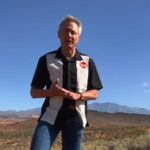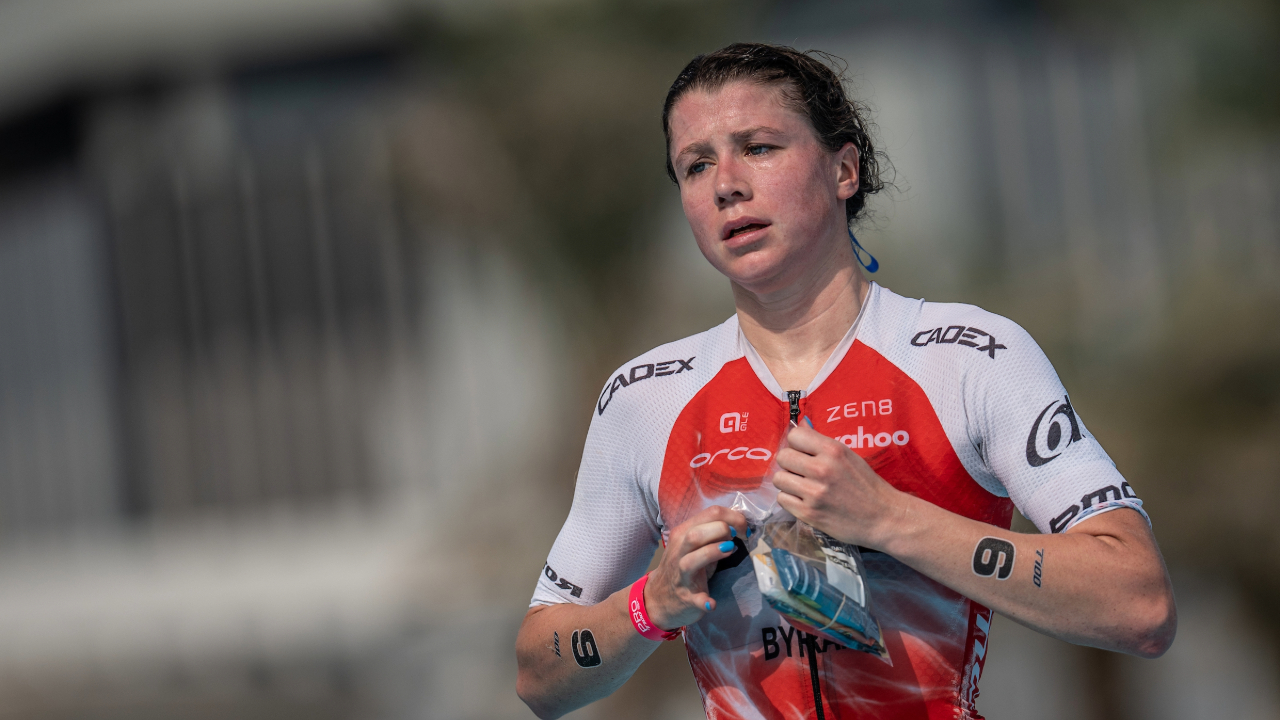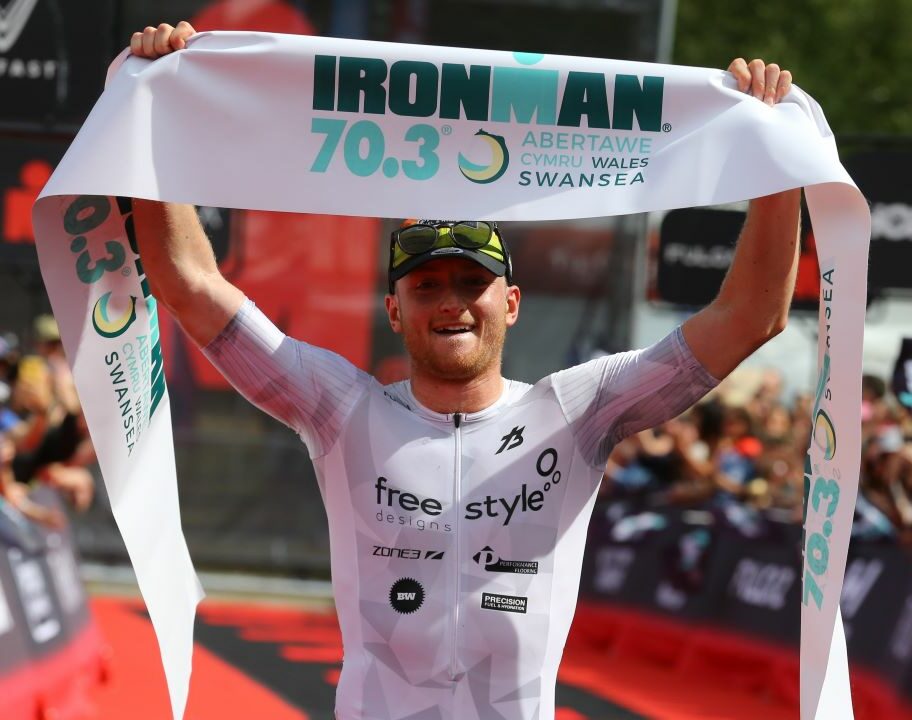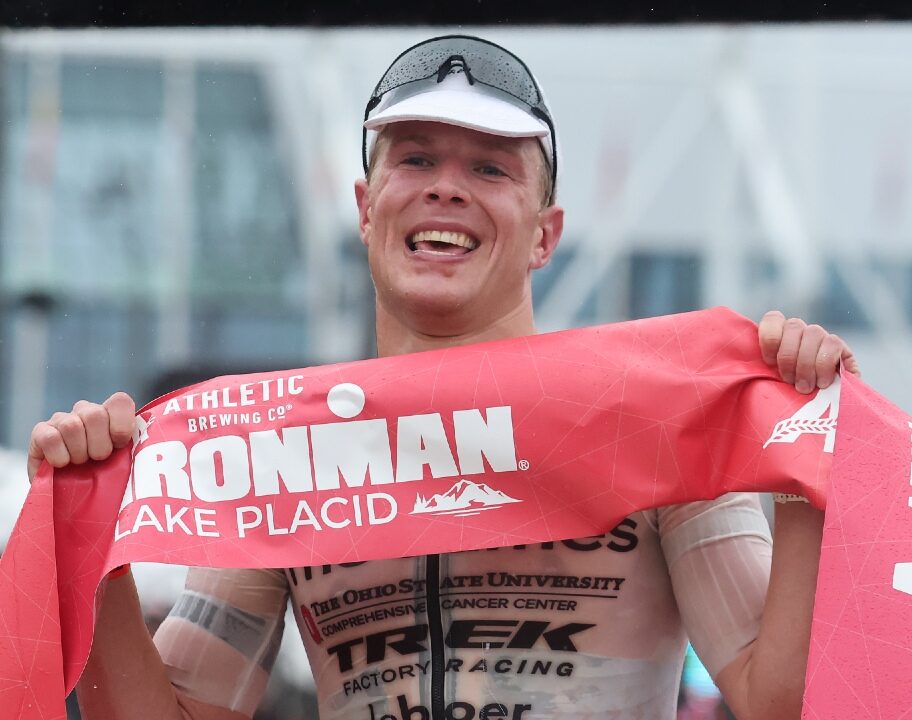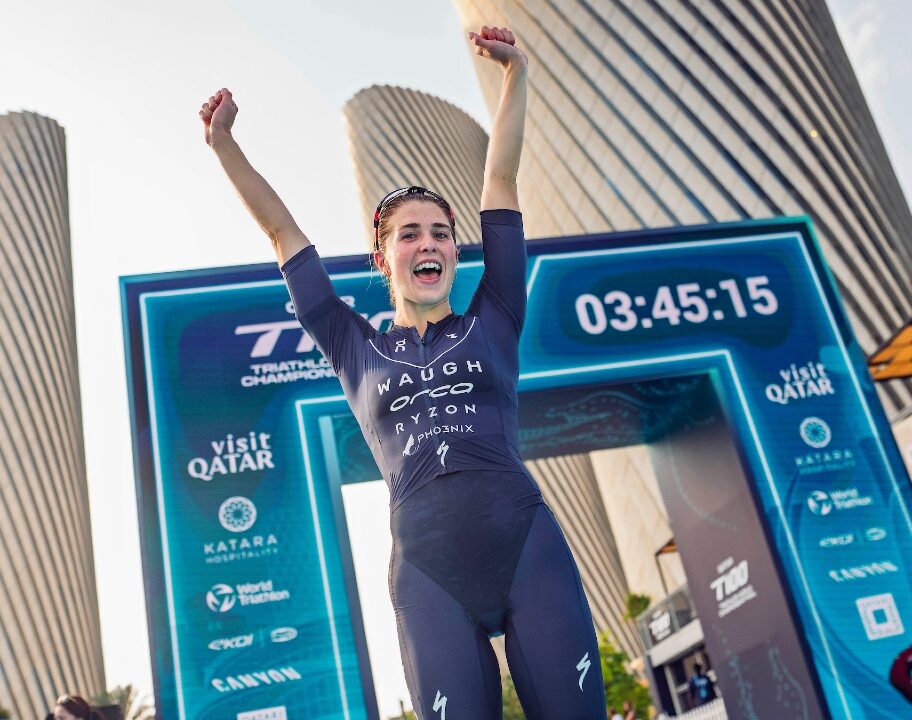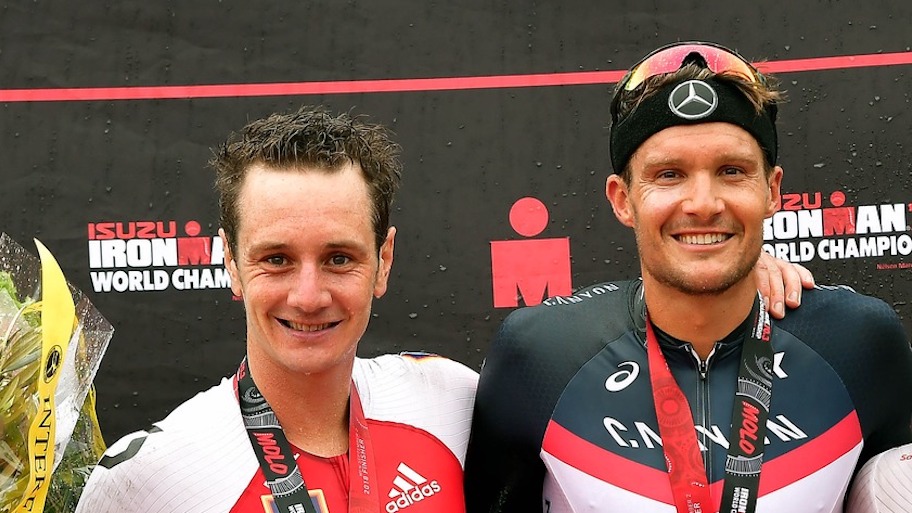Our Road to Paris 2024 on TRI247 continues with a fascinating and in-depth interview with Great Britain’s Beth Potter, whose transition from track and field Olympian to leading swim/bike/run gold medal contender has been an incredible story. I spoke in depth to Beth to find out what makes the Scottish superstar tick, her journey so far, and her thoughts about the big dance in France. I really enjoyed our wide-ranging conversation – and I hope you do too.
With wins at last year’s Olympic test event in Paris and the WTC Finals in Pontevedra, then a very controlled victory just recently at the supertri E World Championships, it goes without saying that Beth Potter is the hands-on favourite to win Olympic Games triathlon gold this summer.
Beth has a pedigree which has proven to be very successful in elite triathlon competition – she was a competitive swimmer and runner, then eventually found her way to tri. Gwen Jorgensen followed the same route winning gold in Rio and now Beth is on that same trajectory as we head full steam towards France in July.
She told me about that progression, explaining: “I loved swimming when I was growing up. I used to swim every night of the week when I was younger. I wasn’t amazing at it. Yes, I reached the finals at national level, but I was not really winning things. I just really enjoyed it.
“But I also ran. I got success in running quite quickly because of my swimming background. I eventually made it to the Rio 2016 Olympic Games as a runner in the 10K. Unfortunately, I had a stomach bug the night before the race, so I didn’t actually perform as well as I’d hoped.
“Off the back of the Games and the disappointment, I decided I needed to do something different. I wanted to throw myself into something completely new that was out of my comfort zone.”
Leeds, the Brownlees, and in at the deep end
At the prompting of those around her, in January 2017, Beth went all in with triathlon and moved to the mecca of the sport in the UK in Leeds. It was a decision which would change her sporting life.
“It was the intrigue that hooked me. I could obviously run. I had the technique from the swimming as a kid. I thought, well, out of the three sports, cycling is probably the easiest to pick up as an adult.
“I’d spent quite a few summers injured and I had to train on the Wattbike. So, I wasn’t starting from ground zero. But I knew I had no experience riding in a group or even how to pace cycling. I knew the going would be tough, but wanted to give it a try.
“I moved up to Leeds to train with the squad there (with the Brownlee brothers). It was one of the best decisions I’ve ever made. I’d been to the Olympics as a runner, and now I’m moving to Leeds to go for it as a triathlete! It was just after my 25th birthday. I threw myself in at the deep end, a very much deep end!”
The transition from runner to triathlete had a learning curve for Beth, especially when it came to the change in training volume.
“It did take a while for me to adjust to the training. It was difficult. I was tired a lot of the time and just couldn’t keep up. It took a couple of years really. Then I came to grips with how to do it in 2019. It was a two-year evolution and adaption to go from the relatively low volume of training I did as a runner to the much higher volume of a triathlete.”
Being in Leeds, of course, afforded Beth the luxury of advice from two-time Gold Medalist Alistair Brownlee. His key advice?
“Just get the sessions done. Doesn’t matter what your times are, just get them done and it will come good. And it did come good. And all those sessions where I felt awful taught me a lot. You’re not going to feel amazing in races all the time. It’s good to get through those harder times. They toughen you up, especially mentally.
“I think the reason I’ve seen such big improvements year after year is from those early sessions. They build within you week after week. And through the years the impact accumulates.”
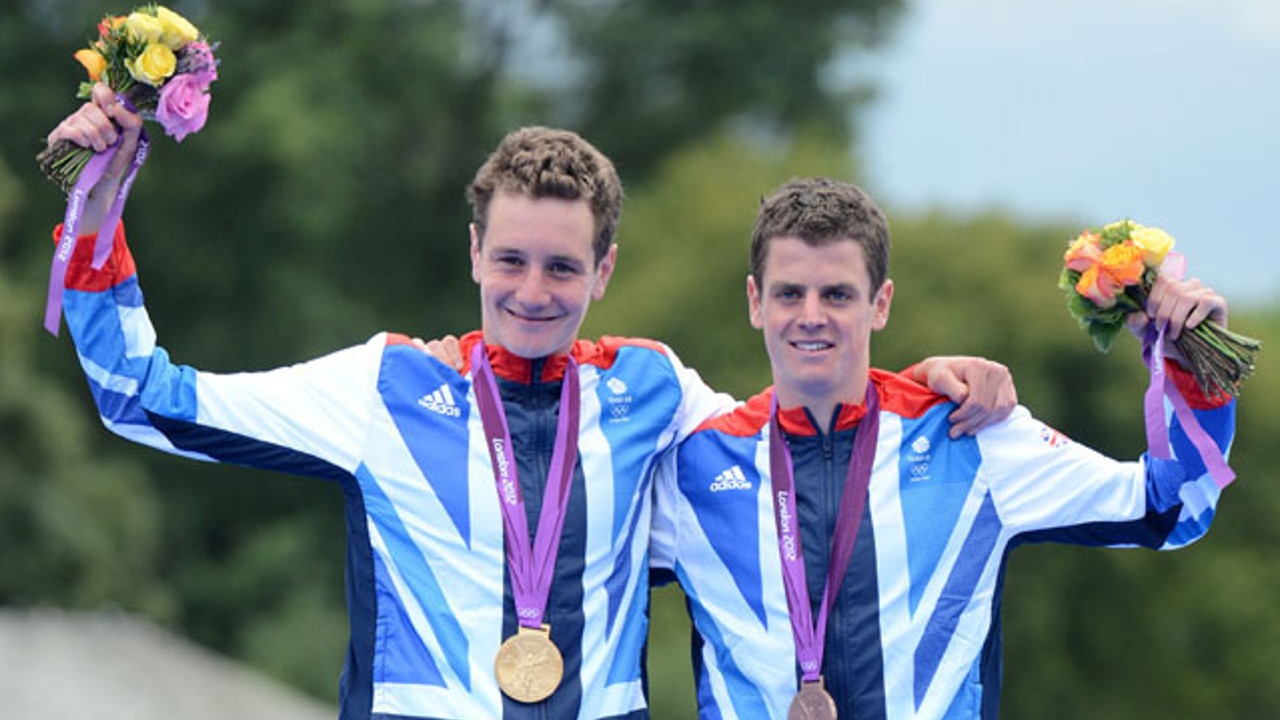
One person’s sacrifice is another’s fun, and nobody exemplifies this more than Beth in pursuit of her best. She gets, and relishes, the fact she is doing something she loves – and that means those sacrifices.
“I’ve never really seen what I do as a sacrifice. Yes, I’ve missed friends’ weddings and other life things. But I love what I’m doing. I’ve always loved training. So, I don’t see it as a sacrifice because it’s something that I enjoy, and I want to do it.”
In pursuit of perfection and a ‘state of flow’
I asked Beth about that magic moment when she’s in a workout and knows everything is at a perfect peak. The response was illuminating.
“Everything feels easy. You’re in this state of flow. Time changes. Everything goes so quickly. A four-hour ride can feel like an hour-and-a-half. It goes and you don’t even think about it. Then it’s done. It’s a feeling of being able to flow and enjoy the time passing quickly.
“When you’re NOT in that state, it’s completely opposite. You feel every moment of pain, and you’re just counting the seconds on the clock until it’s done. That’s why I hold on to those moments of flow and try to remember them.”
Preparing for Paris, and pressure
That Paris Test Event last summer might have been the moment where Beth really stamped her gold medal credentials this summer. She outran Cassandre Beaugrand for a quite brilliant victory, in a race which felt unlike any race she’d done before.
“It was unlike any other triathlon. The whole build-up to the race was really different to anything I’ve ever experienced. It was a lot higher pressure. It felt like an Olympic Games. I didn’t sleep much going into that race and felt very nervous. It was like I’d never done a triathlon before. It was all new again.
“I was in Paris last summer to get a medal. I was one of the favourites. Rio was different. I was going for top 12. If you’re going for top 12, there’s at least 11 other people that you’re thinking about. When you’re going for top of the podium, there’s a very small handful that you’re watching.”
![Cassandre Beaugrand Beth Potter Laura Lindemann Paris Test Event podium 2023 [Photo credit: World Triathlon / Wagner Araujo]](https://www.tri247.com/wp-content/uploads/2023/08/Cassandre-Beaugrand-Beth-Potter-Laura-Lindemann-Paris-Test-Event-2023.jpg)
Mind games – silencing ‘the weak dog’
In a very short time, Potter has gone from being an athlete striving to make podiums, to being the one with the big target on her back. So how does she deal with now being a favourite in terms of mindset and thought process?
“I really don’t mind being the hunted. I focus on myself. As long as I can tick off my own process, I know that I’ll have a good race.
“And I know what that means psychologically. Everyone’s got a weak dog and a strong dog. My weak dog would rear its ugly head every now and then. I’ve worked hard to silence that dog. My weak dog is that I’ve always struggled to find deep belief in myself.
“I’m good with it in training. But when I race, I would give people more credit than I would give myself. I’ve really had to work on that. It takes bit of a running commentary in my head when I’m in a race to reinforce positive thoughts.
“It comes down to staying calm when the pressure really starts to hit. Without calm you can make silly mistakes. By staying calm under pressure, you know you’re going to get yourself out of sticky situations. You know you’ll get yourself back in the race. I did that last year at quite a few races. Staying calm and cool and making good decisions is key for the type of racing that we’re doing.
“I find saying something like “don’t panic” is quite negative. Even the word “panic’ makes you panic! I say things like ‘Stay relaxed, you know what’s next’. “I’m good at transitions and I can run’.”
All eyes on Paris, and the coolest of Olympics
Now, as all eyes shift very much towards that big race in late July, Beth is not just focused on Paris. She’s also very very excited – Olympic experiences do not come any cooler than this one.
“Paris is an amazing city. It’s really cool that we get to race on the same streets as the Tour de France riders. And the course goes around so many of the iconic buildings. Getting to see them is just amazing “.
The preparation between now and the end of July is 100% about THOSE Games and THAT race. It’s something Potter plays out every day in her mind, and the attention to detail and concentration is unwavering.
“I find myself thinking about that moment every single day when I wake up. In a track session, I’ll imagine that the people around me in the group are my competitors I’ll see in Paris and I work out how I’ll get to the line first.
When I look back after it’s all over, I want to make sure I’ve done everything possible to do the best I can. If it doesn’t work on the day, then it doesn’t work. That may be my story, but I just want to be able to stand in that start line on the 31st of July and know that I threw everything at it. There’s nothing more I could have done. I want to make sure I’ve got no regrets.”
Beth Potter’s superpowers
Everybody has superpowers, and athletes are no different. So what does Beth credit as her most important and valuable traits when it comes to being elite at what she does? Again, some sage Brownlee advice plays a part here.
“I’m just not wanting it all right now. I’s not going to happen like that. You have to work away at it and be patient. You have to go through the process. That’s part of the journey. And that’s definitely something that I’ve had to learn… to let go and let it happen and learn along the way.
“Good things take time. They don’t happen overnight. It’s about doing it every day. It’s training like a champion and eating like a champion and going to bed like a champion. You have to turn up to train even on your off days. You’ve got to turn up with the right attitude and get it done.
“From day one I had the Brownlees showing me this with how they trained. That’s more motivation than you need to be honest because you’ve got them right there. They’re going through the hard training as well. It’s motivation.”
The need for sleep
One thing all athletes, and all people in all walks of life, need is sleep. For some it is a constant battle, trying to ensure the right rest and relaxation. So is Beth a good sleeper?
“Terrible. So bad. So bad! It was really bad before the pandemic. Then I got a dog. That really helps with anxiety to have him around the house. It helped with the insomnia I had out of season. I’d have like three or four weeks at a time where I wouldn’t get much sleep.
I still struggle with sleep in the lead-up to races. I try to bank sleep when I’m home because when I go away, I know I’m not going to sleep well. It’s been a struggle. But it’s just part of who I am. I’ve learned to accept that.”
When that recent WTCS race in Abu Dhabi was cancelled, Potter saw how much of race fatigue is from the build-up. It was telling and enlightening.
“That is just the worst part. Once you’re at the racecourse, you’ve got a list of a hundred things that you need to do. So even though we didn’t race, we still we went through the whole process of it. Then when that race was cancelled, I literally felt the adrenaline drain from my body. It was like a switch, it just all came pouring out.
“I was really tired that night as if I’d raced. I had all the after race feels, but I hadn’t even raced.”
What does Beth Potter want you to know?
As we drew towards the end of our fascinating conversation, I asked Beth what would she like people to know about her, and also what is she most proud of.
“I’m resilient and quite tough, and I think that carries across many parts of my life as well. But mostly I’m a really bad quitter! And I think that’s probably why I’ve been successful, because I’m not good at giving things up.
“I just have to find a way. I’ve failed lots of times, but I feel like you get more from the failures than from some of the good races or some of the good experiences. Learning how to fail just makes you better at succeeding.
“My parents gave me that. I fought with my mum for years to not go to saxophone practice on a Tuesday night. But she wouldn’t let me quit. I only wanted to do track. That was really hard for my mum to let me quit that. I mean, I’ve quit some things in my life, but to pursue other things.
“Just now, I’m pretty proud of the journey that I’ve been on to get here. It’s not been smooth, or straightforward for a number of reasons. At first, I didn’t have the funding or the belief from sponsors.
“That taps back into the whole resilience side of things. But I’m proud that I didn’t give up. I’m proud that I kept going and I kept believing in myself. I knew I wasn’t done yet.”
From tears to cheers
That journey Beth talks of did not come without significant bumps in the road, as she told me: “There were really hard periods a couple of years ago where I was in tears at the end of races and thinking, what am I doing? Why am I doing this? And then there’d be a glimmer of hope in training or at a race that kept me in there. I’m glad that I stuck at it.
“I’m eight years older than I was in Rio and hopefully with more experiences under my belt I’ll deal with the highs and the disappointments better than I did last time.”
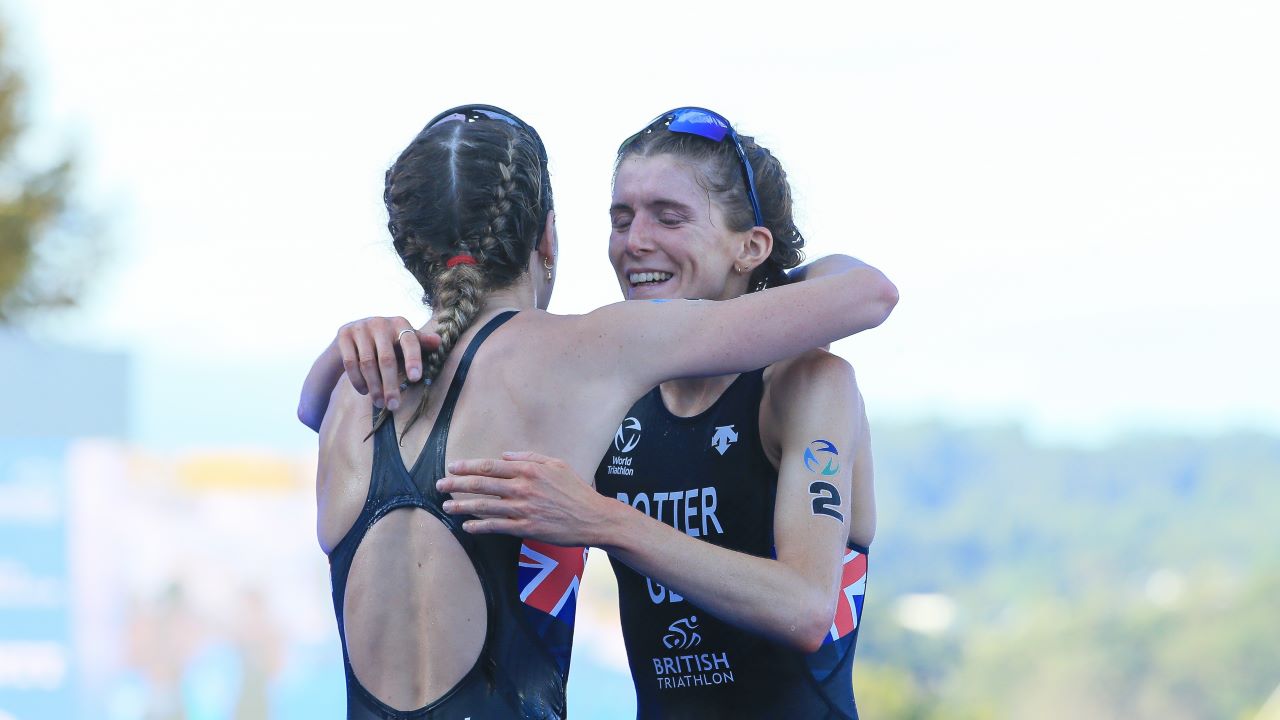
An athlete, and an artist
To close our interview, I asked Beth one thing about her that people probably wouldn’t already know. Turns out she is an artist off the course, as well as on it.
“In my spare time, I like to get a bit artistic. I did this [a painting of waves at a beach hanging on her wall behind her in her house] a couple years ago. I painted it for my sister, but it’s too big for her house. She didn’t have a wall that she can put it on.
“But yeah, I like to do things to de -stress like painting or something artistic, I quite enjoy that.”
So now all roads really do lead to Paris, and that date with destiny in late July. Beth’s triathlon journey is already quite the story, and topping it with gold in the French capital would be a magnificent exclamation point. The countdown is on…


